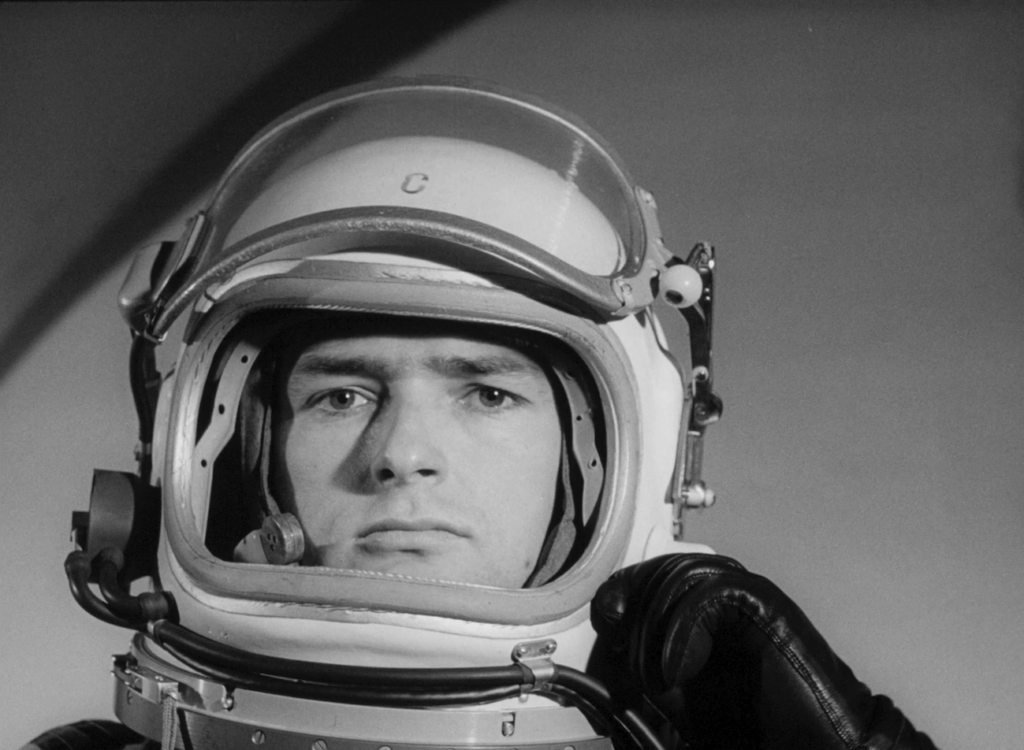The 13th edition of the Museum of Moving Image’s annual “First Look 2024” festival begins this Wednesday, March 13 and runs until the 17th. Over three dozen works will be screened, chosen by their “openness, curiosity, discovery, aiming to expose audiences to new art, artists to new audiences, and everyone to different methods, perspectives, interrogations, and encounters.” Go here for more information and ticket sales.
Here are some features I highly recommend.

There was something poignant and a bit comical about the fate of the first U.S. moon landing in over fifty years last month as the Odysseus spacecraft landed on its side. It was also somewhat ironic in part because both the science and mystery of space travel in the public imagination has been largely replaced in the past few decades by the exciting CGI spectacles of superhero films. But space travel was still exciting and romantic in 1958 when the great Polish science fiction writer Stanisław Lem began his masterpiece, “Solaris.”
That book (adapted for film in 1968 by Andrei Tarkovsky and remade in 2002 by Steven Soderbergh) inspired Polish director Kuba Mikurda to make a short (47 minutes) found footage feature called “Solaris Mon Amour.” (The “Mon Amour” part of the title is a reference to Resnais’ film “Hiroshima mon amour,” filmed the same year Lem began writing his novel.)
Mikurda used clips from 70 films produced by the Educational Film Studio in Lodz in the 1960s and audio excerpts from radio adaptations of “Solaris” from 1962 and 1970 made by Józef Grotowski to construct this intriguing and evocative overture to some of the themes in both the Lem novel and the Resnais film. Most importantly, perhaps, is the way others can trigger post-traumatic memories.
The result is also a fascinating pastiche of the visual and aural tropes that defined a past era of sci-fi’s take on the enigmas of outer space and extraplanetary communication. This is the North American premiere and the director will be in person for a Q&A at screenings.

Rent control regulations in New York City have famously contributed to its arts community by allowing long term low-income artist residents to continue to live here for decades without suffering huge spikes in rental rates. One such artist was Philly Abe, a colorful, often abrasive painter and actress. Filmmaker Elizabeth Nichols met Philly at a meeting held to prepare residents to protest a rent increase proposed by a land owner. (He was later imprisoned for a variety of tenant abuses.)
Nichols continued to document the life of Abe in “Flying Lessons,” a wonderfully candid portrait of a punk artist who, while never achieving huge fame or monetary success, bestowed much to the fabric of downtown NYC culture over several decades. The documentary is not only a portrait of their close friendship but a warning about the risk gentrification poses to this vibrant and important ingredient of what makes New York a capital of the arts. Director Elizabeth Nichols will be in person at this New York premiere screening.

In director Sara Summa’s “Arthur & Diana” a pair of siblings go on a road trip from Berlin to Paris that turns into a meandering series of unexpected maladies and adventures. Sara plays Diana, her real-life brother plays Arthur and Sara’s child plays her son Lupo in this funny and affecting portrait of family dynamics. Older sister Diana and her brother Arthur bicker constantly during the journey as the initial mission to visit their mother and get a vehicle inspected goes awry in many directions. Summa finds novel visual setups to illustrate the characters’ personalities: the self-involved sister walks back and forth during a phone call not noticing that she is causing the store door behind her to automatically open and close repeatedly. The combination of 16mm, DV and cellphone footage gives the film a slightly nostalgic texture.

“Behind Closed Doors” takes archival footage, both journalistic and propagandist, of Brazil’s military dictatorship which began in the mid-1960s and attaches a soundtrack of a secret meeting (unreleased until this film) by that country’s National Security Council in 1968 about whether or not to enact “Institutional Act No. 5,” which would cancel the constitutional rights of citizens and move Brazil into totalitarianism. The casual manner of the statements by the Council members in light of the horrors that took place during the following 17 years of military dictatorship (a reported 434 people killed or went missing and 20,000 tortured) is chilling and a prescient warning about events happening worldwide today. Director João Pedro Bimerson will be on hand for this New York premiere.
Also worth checking out:
Features: “The Echo,” “Sujo,” “Magic Mountain,” “Mimang” and “Samsara.”
Shorts: “The Perfect Square,” “Threat Assessment,” “This Is for Jonas Mekas” and “Single File.”
Go here for more information and ticket sales.
